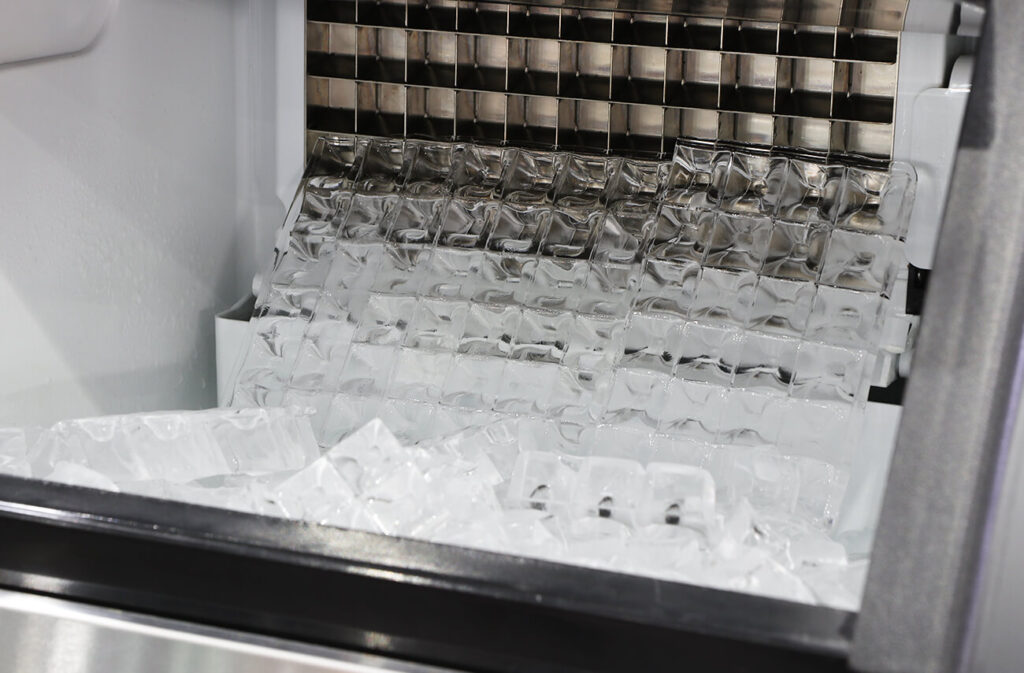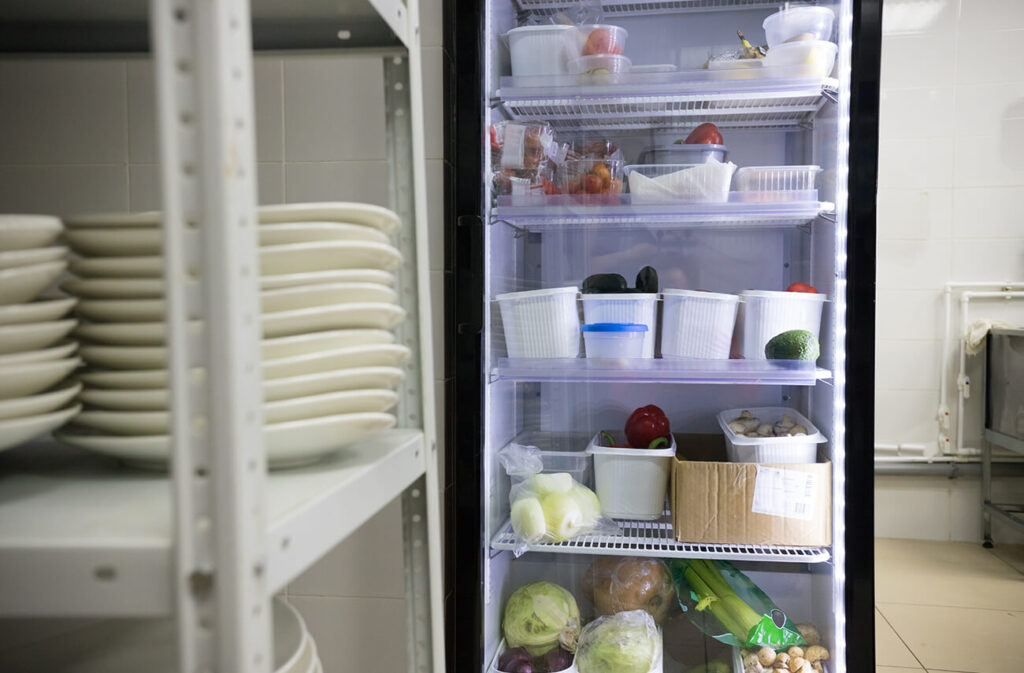Your commercial refrigeration unit is a complex asset for your facility. Without the proper knowledge of what you are purchasing, where to place it, or how to maintain it, you could be spending a bulk of time researching and giving yourself a headache. SLM Facility Solutions collected some of the most common questions in regards to your unit.
I’m looking to install a new commercial refrigeration unit or freezer. Where should it be placed?
Placing your unit in a well-ventilated area and on top of a strong, level surface is best. An uneven surface can cause your refrigerator to perform poorly or create excessive noise. The location needs to be away from equipment which produces heat and moisture as it will effect it.
Also, take into consideration outlets as some units require their own. However, it’s more important to ensure the outlet you select has the appropriate voltage. You can always refer to the manual in regards to what the voltage should be and for the appropriate amount of clearance.
How can I prevent condensation in my refrigerator or freezer?
Several factors can contribute to fogging and condensation within your refrigeration unit. When choosing the best location for your unit, it is important to consider humidity in addition to accounting for ambient temperatures and ventilation. The proper humidity level for your space should be around 45-50%, as measured by a hygrometer. Opening and shutting the equipment frequently or a clog in the evaporator drain pan can also cause condensation.
What’s the best way to keep my unit clean?
While you may know a lot about your unit, it always best way to partner with a reputable HVAC/Refrigeration professional such as SLM Facility Solutions. They will be able to customize preventative maintenance based on your budget and unit to keep it in tip-top shape.
Most PM plans include assessment of your commercial refrigerator and ensure the following is completed:
- clean or replace fan filters
- clean gaskets and repair or replace door hardware
- remove and clean ice machine components
- clean strip curtains of dust and foreign matter
- clean evaporator fans & drainage pan
- pressure clean condensers
Isn’t maintenance usually expensive? I’m worried it would be a strain on my budget.
“Preventative maintenance is a systematic approach to building operations that aims to predict and prevent catastrophic equipment failures before they occur.” While you may think that paying for service twice a year would be more expensive than once a year you need to consider the long-term benefits. Also, 1 emergency call due to an unexpected breakdown leads to emergency pricing which can, in turn, be more expensive than 2 PM or preventative maintenance trips. This doesn’t include the effect it has on your bottom line when you have to toss food instead of serving it.
However, in the long-term scheme of things, taking care of your unit actually will prevent breakdowns preventing those fees. It also keeps your commercial refrigeration unit in shape so you won’t need to replace it before it’s time.
What are some signs that my commercial fridge unit is wearing out?
10 to 15 years is the average life span of a commercial refrigeration unit. However, there are a few signs to keep a look out for that may cause you to be replacing yours early. Most often the tall-tell sign is the need call a technician due to it making odd noises, not keeping temperature or complete unit failure. If it also becomes most costly to repair than to replace it may be time to consider it.
Have more questions?
Have further questions about your specific unit or how to care for it? SLM Facility Solutions Nationwide is here for you. With over 20 years of experience managing our clients’ facility maintenance needs, we are your One Company. One Call. Your Advantage. Contact SLM Facility Solutions today.



